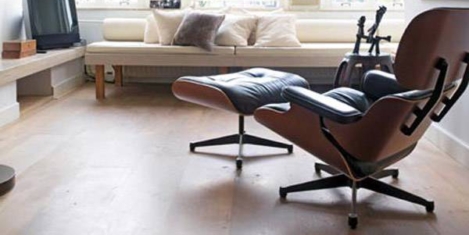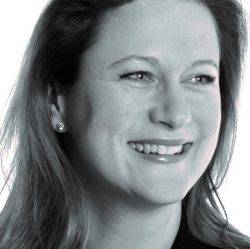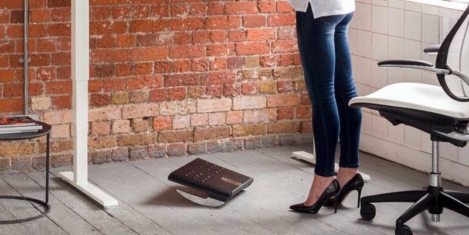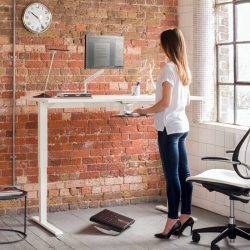August 30, 2018
Larger businesses far more stressful to work for than smaller firms
 We reported yesterday that younger job seekers who favour corporates could be missing out on greater opportunities within smaller organisations, and now new research suggests that despite margins often being tighter and tensions or losses often being felt more keenly in smaller businesses, the level of occupational stress workers feel directly correlates to the size of the company they are in. Micro businesses employing a maximum of four members of staff were less likely than those in businesses of any other size to feel work-related stress, with 45 percent of employees reporting this to the Perkbox 2018 UK Workplace Stress Report. This figure increases to 57 percent for small businesses (5 – 50 staff) and again to 62 percent for small to medium sized organisations (51 – 500 employees). Finally, workers at larger sized businesses – those with more than 500 members of staff – report the greatest instances of staff experiencing workplace stress (65 percent).
We reported yesterday that younger job seekers who favour corporates could be missing out on greater opportunities within smaller organisations, and now new research suggests that despite margins often being tighter and tensions or losses often being felt more keenly in smaller businesses, the level of occupational stress workers feel directly correlates to the size of the company they are in. Micro businesses employing a maximum of four members of staff were less likely than those in businesses of any other size to feel work-related stress, with 45 percent of employees reporting this to the Perkbox 2018 UK Workplace Stress Report. This figure increases to 57 percent for small businesses (5 – 50 staff) and again to 62 percent for small to medium sized organisations (51 – 500 employees). Finally, workers at larger sized businesses – those with more than 500 members of staff – report the greatest instances of staff experiencing workplace stress (65 percent).









 Traditional job roles are becoming more complex due to digital transformation initiatives a new poll claims, with UK businesses having to wait more than five months, on average, for new joiners to get up to speed in their jobs. In the research by Robert Half of almost 5,000 CFOs in 14 countries, CFOs in the UK report that the key skills for finance professionals are changing. With digital transformation a priority for many organisations, there is now more focus on skills such as data analysis (cited by 43 percent of CFOs), financial analysis (35 percent), and data forecasting (34 percent). Finding the right people with these abilities is made even more challenging by the fact that businesses around the world are struggling to find qualified professionals. Almost all (93 percent) UK businesses find it challenging to attract qualified accounting and finance professionals. Globally, the issue is equally pronounced, with 94 percent of businesses also reporting similar challenges.
Traditional job roles are becoming more complex due to digital transformation initiatives a new poll claims, with UK businesses having to wait more than five months, on average, for new joiners to get up to speed in their jobs. In the research by Robert Half of almost 5,000 CFOs in 14 countries, CFOs in the UK report that the key skills for finance professionals are changing. With digital transformation a priority for many organisations, there is now more focus on skills such as data analysis (cited by 43 percent of CFOs), financial analysis (35 percent), and data forecasting (34 percent). Finding the right people with these abilities is made even more challenging by the fact that businesses around the world are struggling to find qualified professionals. Almost all (93 percent) UK businesses find it challenging to attract qualified accounting and finance professionals. Globally, the issue is equally pronounced, with 94 percent of businesses also reporting similar challenges.




 Long corporate lunches were once the cornerstone of the corporate expense account, but new figures show just 13 percent of today’s workforce claim expenses for lunch at a restaurant, compared to 36 percent of those in the 1970s and 37 percent in the 80s. The data, released by Barclaycard, also claims that just 10 percent claim dinner at a restaurant with a client on their expenses. This is less than half the proportion who did so in the 1960s (34 percent), 70s (27 percent) and 80s (28 percent). Employees are also less likely to catch up with clients over drinks, with just seven percent regularly footing the bill for a round – approximately a quarter of the proportion who say they did so in the 1980s (27 percent). The expense management process itself has also become more formal, with a clear shift to self-service – almost two-thirds of today’s employees file their own expense claims compared to just over a third in the 1960s.
Long corporate lunches were once the cornerstone of the corporate expense account, but new figures show just 13 percent of today’s workforce claim expenses for lunch at a restaurant, compared to 36 percent of those in the 1970s and 37 percent in the 80s. The data, released by Barclaycard, also claims that just 10 percent claim dinner at a restaurant with a client on their expenses. This is less than half the proportion who did so in the 1960s (34 percent), 70s (27 percent) and 80s (28 percent). Employees are also less likely to catch up with clients over drinks, with just seven percent regularly footing the bill for a round – approximately a quarter of the proportion who say they did so in the 1980s (27 percent). The expense management process itself has also become more formal, with a clear shift to self-service – almost two-thirds of today’s employees file their own expense claims compared to just over a third in the 1960s.

















August 16, 2018
The office will always live on because nothing propinks like propinquity
by Mark Eltringham • Comment, Property, Workplace design